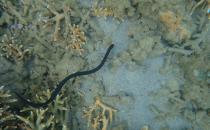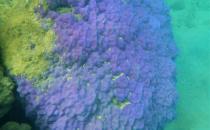The Consortium has the following objectives:
1. Strengthen partnerships between organisations and universities
CRESICA is tasked with boosting collaboration between higher education and research institutions in New Caledonia with a view to promoting interdisciplinary research and mobilising all available skills and expertise to generate knowledge - from basic to applied knowledge.
2. Bring various players together to drive forward key joint projects with significance for New Caledonia
One of CRESICA’s core assignments is to determine scientific positioning so as to ensure optimal alignment of scientific potential and the research work needed to drive New Caledonia’s development. The members aim to boost scientific cooperation in fields of research of interest to New Caledonia or the Pacific Region where shared or complementary skills are available to conduct such research.
3. Help ensure the country is supplied with the skills it requires
The CRESICA members are committed to a pursuing a joint policy for the training of young researchers, including training backed by the Ecole Doctorale du Pacifique (Pacific PhD School). The aim is to promote optimal alignment between Site Contract topics and proposed thesis subjects of relevance to the country or the Pacific Region.
4. Help in the dissemination of research outcomes
The aim of the Consortium is to further contribute to the transfer of knowledge to the economic sector and the public through an enhanced understanding of the education-research-innovation continuum; building a coordinated policy for the development and dissemination of research outcomes and public communication.
5. Pool resources for the purchase of equipment
CRESICA is committed to pooling equipment, optimising resources and achieving research excellence.
6. Foster reciprocal initiatives in the Pacific Area
Through a joint strategy, the CRESICA members aim to achieve a significant increase in exchanges between researchers and students working in New Caledonia and the Pacific Region, and to boost centralisation of research in the Pacific Region (regional networks, attractiveness and scope of influence).
To meet these objectives, CRESICA made the drafting of the “Joint Project” or “Joint Scientific Agenda” the first step in the work to be undertaken.
With the aim of serving New Caledonia, CRESICA’s framework for action, placing emphasis on the watershed continuum (mine/lagoon) and backed by teams of researchers based in New Caledonia, encompasses three key thematic goals:
1. Developing natural capital: biodiversity, mines and environment
New Caledonia’s outstanding diversity of scenery, plants and wildlife on land and at sea is a key factor when considering issues affecting the country’s future. The stakes are high and require responses in terms of knowledge, management and development, together with conservation, rehabilitation, remediation and mitigation measures to contain and control natural and human impacts.
2. Improving health in conjunction with the environment and businesses
As a tropical archipelago with a fast-changing multicultural social context, healthcare issues in New Caledonia are affected by economic, geoclimatic and cultural factors and conditions. With a greater understanding of health, environmental and social determinants of diseases, whether infectious or non-communicable, measures which are more effective and more readily accepted by local communities could be put in place to combat or prevent diseases. Diseases have a high economic and social impact. For example, there are over 40,000 “long-term illness healthcare scheme” patients, including over 26,000 suffering from cardiovascular diseases and over 11,000 diabetics (DASS Health Situation 2012). Annual medical costs for cardiovascular diseases total around 12 billion XPF, plus around 5 billion XPF going to treatment of diabetic patients.
3. Supporting institutional, social and cultural development
New Caledonia shares a history with that of other settled lands in Oceania and has been marked by multiple pre-colonial and colonial social changes. The Matignon-Oudinot Accords (1988) and the Noumea Accord (1998) underpinned the need for a nation with a shared destiny based upon the respectful coexistence of different communities, within a context of New Caledonia’s gradual emancipation. An innovative model of negotiated decolonisation was thus established, the aim being to reach a clearer understanding of the processes behind social identification at a local level (citizenship, independence, nationality), together with the factors of mixed ethnicity and social mobility playing an increasing part in New Caledonian society. Research will highlight not only what is inhibiting but also what is spurring innovation and cohesion. Particular attention will be given to social, educational and cultural innovations with strong potential to drive adaptation and integration and enhance social cohesion.
Two transverse components are added to the three key thematic goals:
- insularity-globalisation;
- and climate change.


















